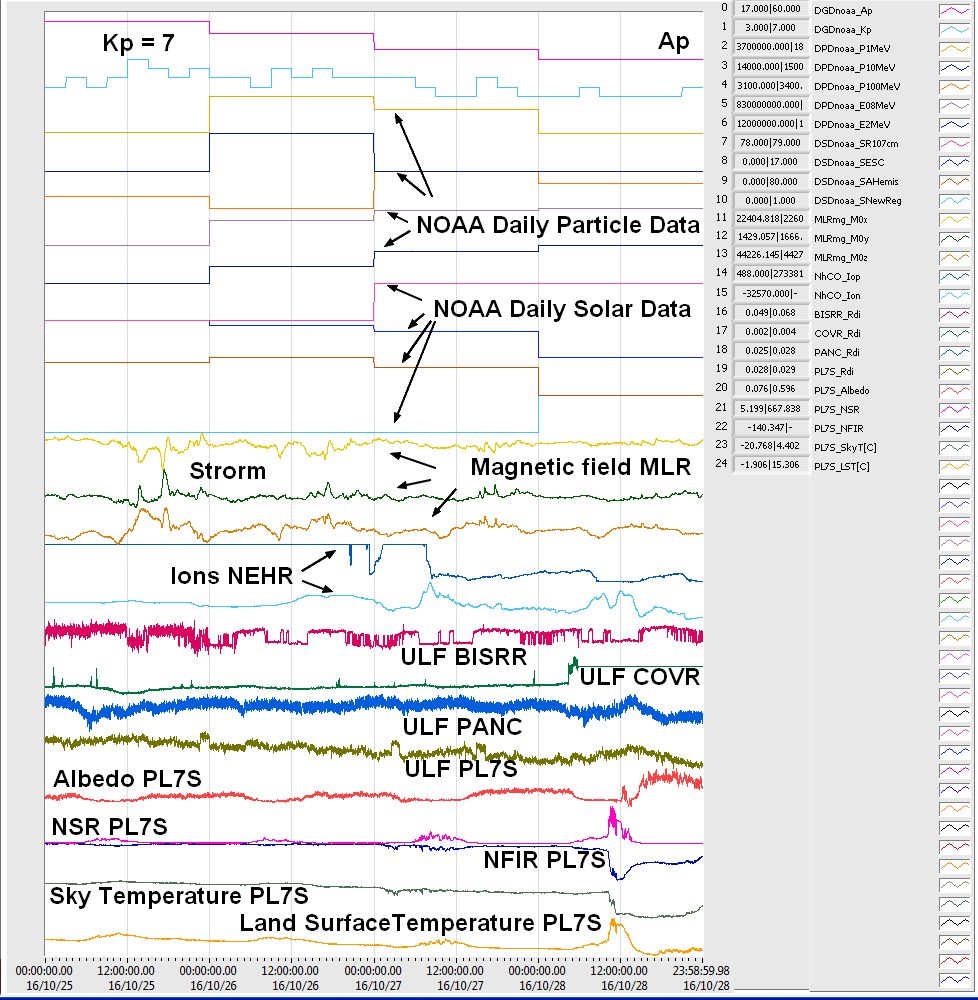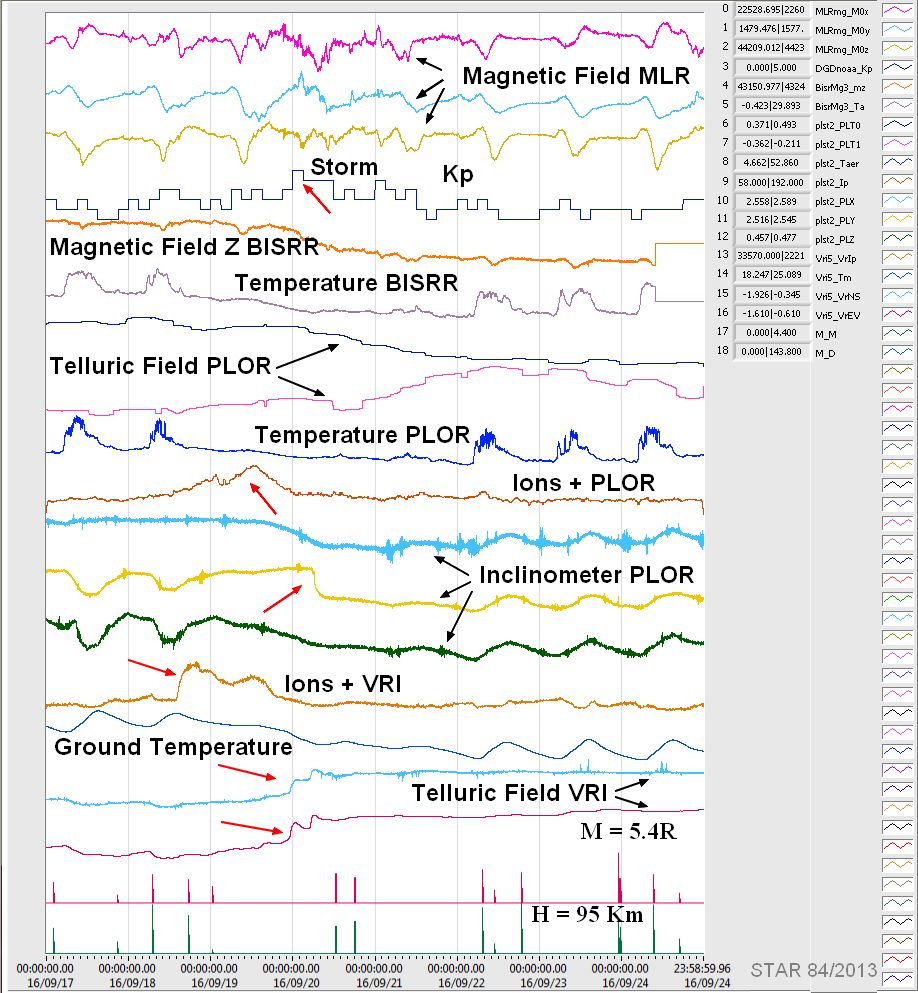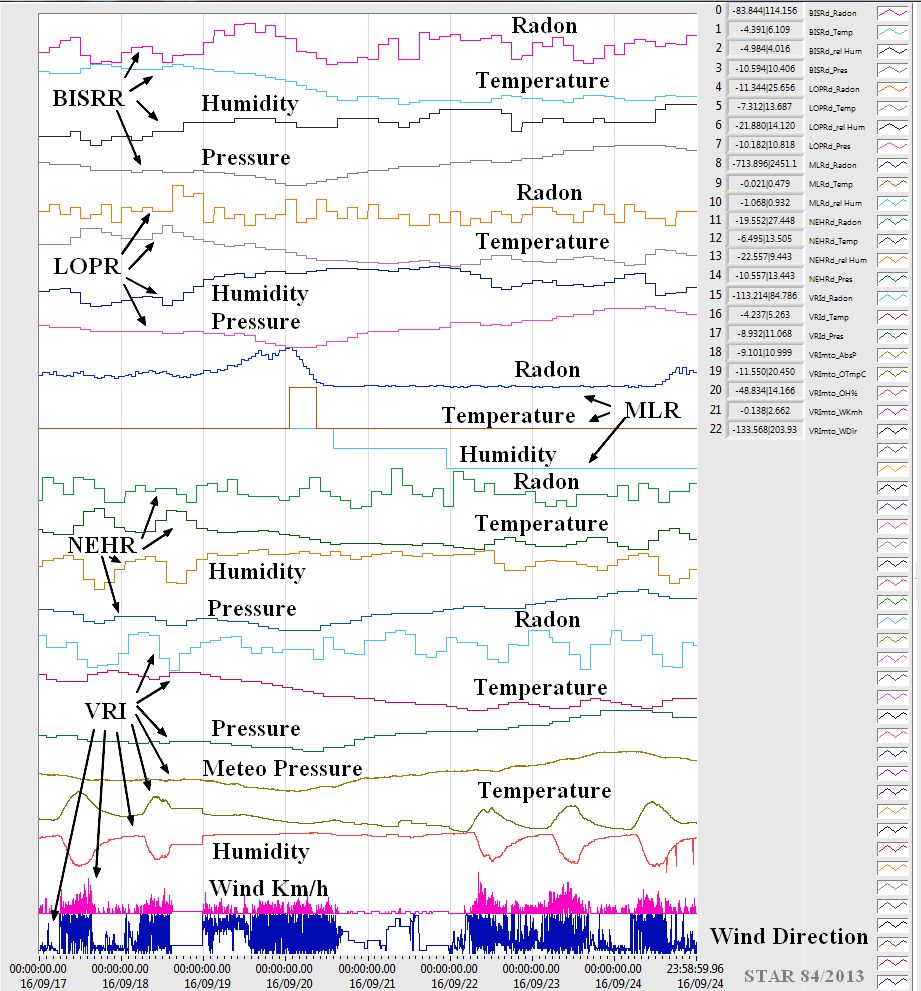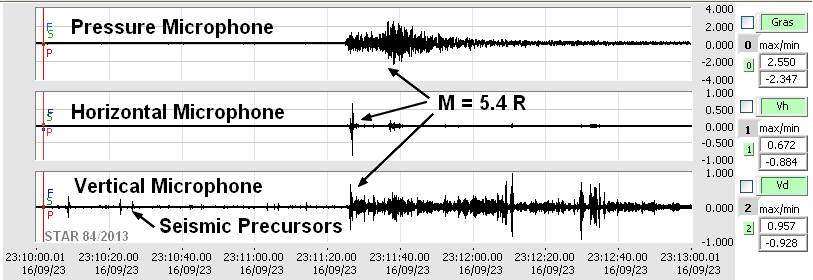Phase 4
demonstrates the multidisciplinary monitoring functionality based on
the evaluation of data provided by the integrated system. The results
were disseminated through participation with posters at EGU 2016 and
2016 IBWAP, papers published or presented for publication in ISI
journals.
We analyze data from atmospheric
monitoring (ionization, solar radiation, clouds, radon, electric
field), telluric currents, magnetic field and satellites.
The project highlights the
interdependence between the ionization of atmospheric air, solar
radiation, variations in visible light, temperature, humidity,
atmospheric pressure, wind speed and direction, telluric
currents, variations in local magnetic field and infrasound in
the air, variations in electrostatic field, atmospheric anomalies,
strain crust slope and ULF measurements.
The goal of data analysis is to determine seismic precursors using
local seismicity. Generally we perform detection of events related to
the modification of monitored parameters which may be the result of
tectonic stress, meteorological phenomenas or climate changes widely.
One effect of geomagnetic storms refers
to radio wave propagation. Kp index characterizes the magnitude of the
disturbance and geomagnetic field geomagnetic storm. In next example we
present the case Kp = 7 (2016/10/25) and the recorded signals
from the ground magnetic field, ionization of the atmosphere, ULF radio
waves and solar radiation.

We don't observe direct effects of the
magnetic storm on ULF waves, ionization of air or solar radiation
recorded on the ground. Magnetic field variations indicate a high
geomagnetic perturbation amplitude.
The following figures represent precursor signals of earthquake
from 23.09.2016 with Ml = 5.4R, H = 95 Km.

The earthquake was preceded by a geomagnetic storm, variations of
telluric field and the ionization of air. At these data we add
meteorological information, acoustic, ULF and CO2. Variations of radon
are shown in the following figure.

In VRI station we recorded ground vibrations from three acoustic
sensors. Precursor noises occurred with hours before the
earthquake.

The data structure and events detection
process are described in paper Detection
of Events in a Multidisciplinary Network Monitoring Vrancea Area.
Exemples (data format is text, compatible Excel):
CO2
Solar Radiation
|

